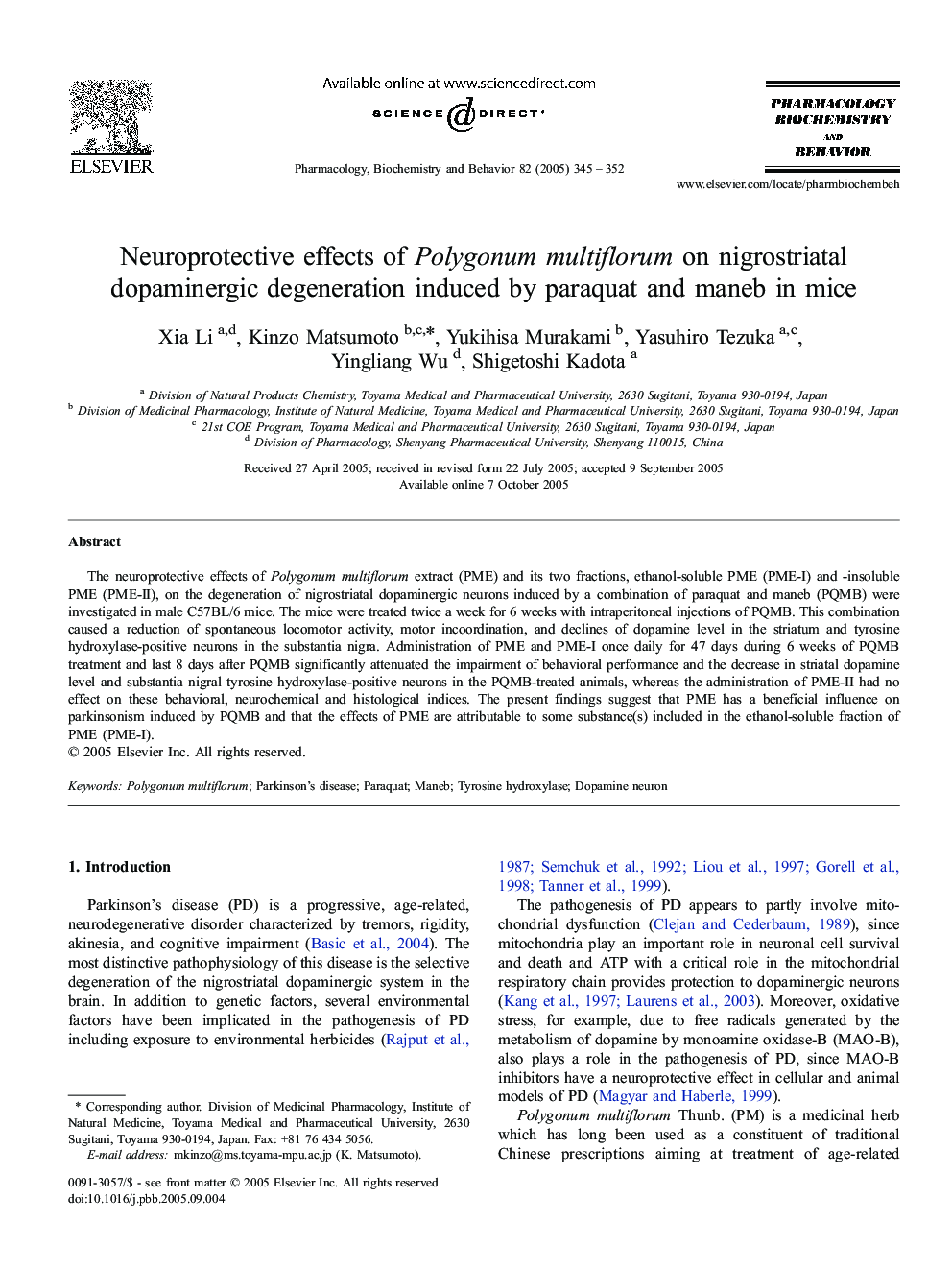| Article ID | Journal | Published Year | Pages | File Type |
|---|---|---|---|---|
| 10838507 | Pharmacology Biochemistry and Behavior | 2005 | 8 Pages |
Abstract
The neuroprotective effects of Polygonum multiflorum extract (PME) and its two fractions, ethanol-soluble PME (PME-I) and -insoluble PME (PME-II), on the degeneration of nigrostriatal dopaminergic neurons induced by a combination of paraquat and maneb (PQMB) were investigated in male C57BL/6 mice. The mice were treated twice a week for 6 weeks with intraperitoneal injections of PQMB. This combination caused a reduction of spontaneous locomotor activity, motor incoordination, and declines of dopamine level in the striatum and tyrosine hydroxylase-positive neurons in the substantia nigra. Administration of PME and PME-I once daily for 47 days during 6 weeks of PQMB treatment and last 8 days after PQMB significantly attenuated the impairment of behavioral performance and the decrease in striatal dopamine level and substantia nigral tyrosine hydroxylase-positive neurons in the PQMB-treated animals, whereas the administration of PME-II had no effect on these behavioral, neurochemical and histological indices. The present findings suggest that PME has a beneficial influence on parkinsonism induced by PQMB and that the effects of PME are attributable to some substance(s) included in the ethanol-soluble fraction of PME (PME-I).
Related Topics
Life Sciences
Biochemistry, Genetics and Molecular Biology
Biochemistry
Authors
Xia Li, Kinzo Matsumoto, Yukihisa Murakami, Yasuhiro Tezuka, Yingliang Wu, Shigetoshi Kadota,
